Search
Remove Ads
Advertisement
Summary 
Loading AI-generated summary based on World History Encyclopedia articles ...
Search Results
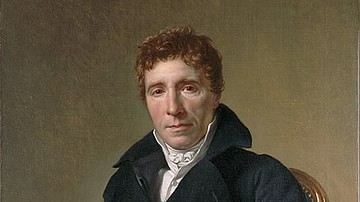
Definition
Emmanuel-Joseph Sieyès
Emmanuel-Joseph Sieyès (1748-1836), commonly known as Abbé Sieyès, was a French clergyman and political writer, who became a leading voice in the Third Estate during the French Revolution (1789-99). Sieyès played instrumental roles in both...
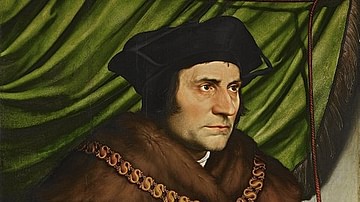
Definition
Sir Thomas More
Sir Thomas More (1478-1535 CE) was a lawyer, scholar, statesman, and Lord Chancellor to Henry VIII of England (r. 1509-1547 CE) who was executed in July 1535 CE for his refusal to endorse Henry's break of the Church in England from the Catholic...

Definition
Sir Thomas Fairfax
Sir Thomas Fairfax, 3rd Baron Fairfax of Cameron (1612-1671), was the first and highly successful commander of the Parliamentarian New Model Army during the English Civil Wars (1642-1651). Fairfax's leadership, tactical prowess, and courage...

Definition
Twelfth Night - Shakespeare's Most Festive Play
Twelfth Night, or What You Will is a romantic comedy by William Shakespeare (l. c. 1564-1616), written between 1600 and 1601 and first performed on 2 February 1602. As suggested by the title's allusion to Twelfth Night – the night before...

Article
Medieval Knights: 12 of the Best
The knights of medieval Europe were meant to be the finest fighting men of their age, even more important, they were expected to be pure in thought and deed, as exemplified in the chivalrous code which they (usually) followed. Here are the...

Definition
Sir William Marshal - England's Greatest Knight
The Englishman Sir William Marshal (c. 1146-1219 CE, aka William the Marshal), Earl of Pembroke, is one of the most celebrated knights of the Middle Ages. Renowned for his fighting skills, he remained undefeated in tournaments, spared the...
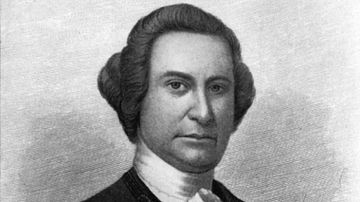
Definition
Sir William Johnson
Sir William Johnson, 1st Baronet (l. c.1715-1774) was a British military officer, diplomat, and Superintendent of Indian Affairs. He was instrumental in aligning the Native Americans of New York with the British during the French and Indian...
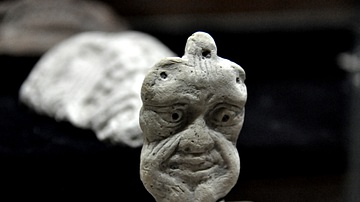
Article
Dialogue of Pessimism
The Dialogue of Pessimism (c. 1000 BCE) is a Babylonian poem featuring a master and his slave in ten exchanges during which the master proposes an action, and the slave gives reasons for and against its pursuit. The piece has been interpreted...
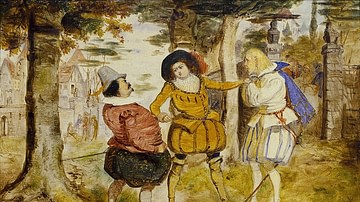
Image
Sir Toby Coming to the Assistance of Sir Andrew Aguecheek
In Act IV Scene I of William Shakespeare's comedy Twelfth Night, Sir Toby Belch rushes to the assistance of Sir Andrew Aguecheek, who is being beaten bloody by Sebastian. Oil on panel by Arthur Boyd Houghton, c. 1854. Folger Shakespeare...

Definition
Chepstow Castle
Chepstow Castle, located in Monmouthshire, South Wales, was first built c. 1067 by William FitzOsbern and then significantly improved c. 1190 CE by Sir William Marshal (c. 1146-1219 CE), one of England's greatest ever knights who served four...